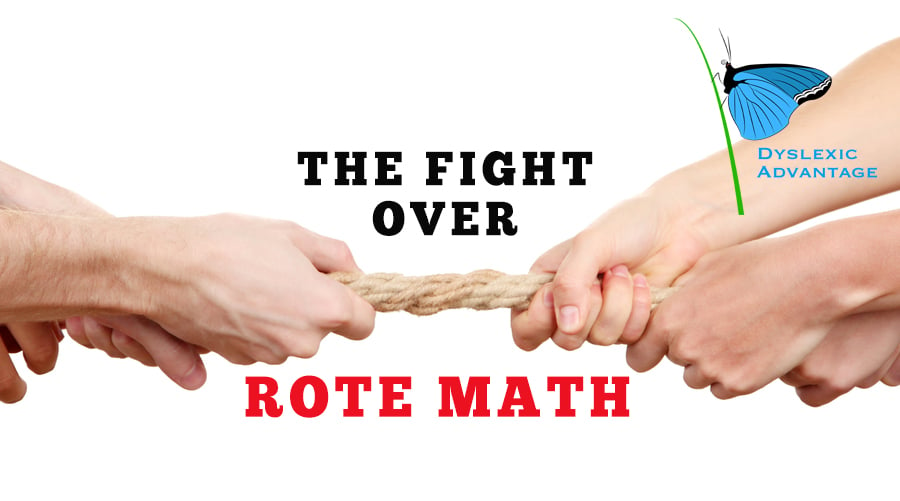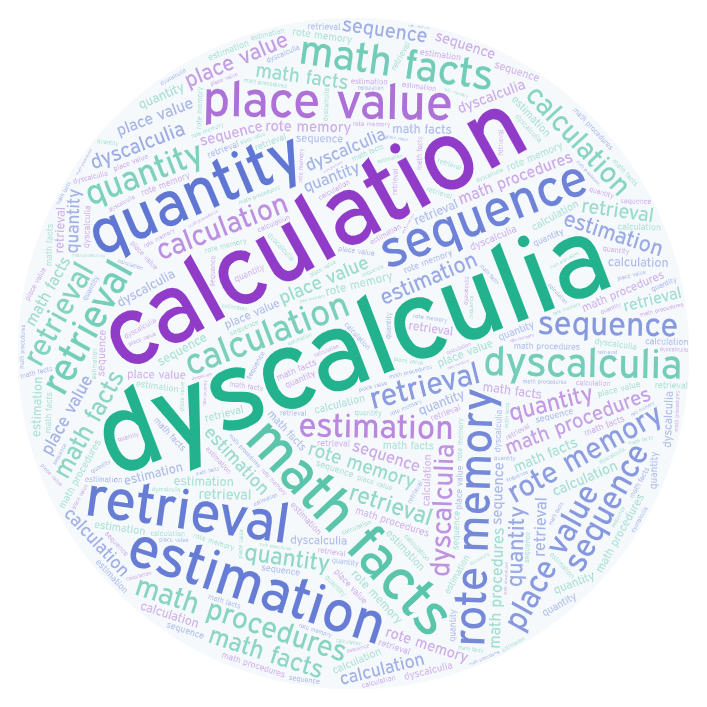This is your brain with math anxiety. In children as young as 7 years old, researchers found that activation in areas such as the amygdala and hippocampus were seen in children who had high math anxiety. The amydala and hippocampus are areas of the brain associated with fear condition and negative emotions. The children were given simple and complex arithmetic problems and asked to determine whether the answers given were right or wrong. The children in the high and low anxiety group were matched for IQ, working memory, reading and math performance, and general trait anxiety. As a double burden, the high math anxiety group (HMA) in the figure showed lower brain fMRI activation in areas associated with math processing. So anxiety could be acting […]
The Teacher Who Didn’t Know How to Read
If you haven't heard John Corcoran's story, it's a great one. He became a teacher, never knowing how to read, getting by through good social skills, athletic ability, and cheating with the help of friends. He even taught for 17 years (showing more films and visuals...
[PREMIUM] Letter for Teachers
As the school year starts, it’s time to open up the word processing program and get to work on a letter for your student’s teachers. Letters should be customized for the particular class, subject, grade, and student’s needs. Here’s a nice example from Trish: “You have our son, *** in your second period AP Lang class. I wanted to give you a heads up that he has an IEP with accommodations. He has been professionally diagnosed by licensed psychologists as intellectually gifted, with dyslexia and dysgraphia. Dyslexia is often referred to as an invisible disability, and ____ has in the past had either his intelligence or his disabilities underestimated, as they can camouflage each other. He is an extremely hard worker, tries hard to overcome […]
[PREMIUM] What is Dyslexia? – Fast Facts for Teachers
THE MOST COMMON LEARNING DIFFERENCE Dyslexia is the most common learning difference, seen in up to 15-20% of the population. Dyslexia tends to run in families, but it can vary a great deal from family member to family member. IT’S NOT JUST READING Reading challenges are a central feature of dyslexia, but dyslexia-related brain differences have been detected in children before they are reading age and with appropriate intervention, reading improves significantly. There are learning strengths also associated with dyslexia that are helpful to know for educational reasons as well as future careers. FAST FACTS FOR TEACHERS #1. Dyslexic students are smart. Dyslexic students have average or higher than average intelligence. Are they receiving adequate challenge and opportunity in their daily work? Could you be […]
Dyslexia-FRIENDLY Foreign language Instruction [PREMIUM]
Because dyslexia has significant challenges that make foreign language learning difficult (e.g. impaired phonemic awareness, limitations on auditory verbal working memory, weak rule-based memory and syntax, etc.), many students request and are granted foreign language waivers. That being said, there are many students who can do well at foreign language learning, and alternative classrooms should be considered in order to help more students achieve proficiency in a second language. From Dr. Jonathan Arries: “Studies suggest that students with LDs may experience difficulties with the following tasks: 1) imitation and differentiation of vowel sounds 2) orthography 3) vocabulary acquisition 4) comprehension and memory of spoken instructions 5)reading comprehension passages 6) comprehension of written instructions 7) application of grammar rules taught inductively….Javoarsky, Sparks, and Ganschow indicate some […]
[PREMIUM] Reading and Spelling: When Sights and Sounds Don’t Match
TRICKY WORDS: WHEN SIGHTS AND SOUNDS DON’T MATCH Spotlight: Inflectional Suffixes Because many dyslexic students don’t have a visual imprint of words, there are common spelling or pronunciation errors that occur when word endings seem to vary. In most cases, being explicitly taught the different patterns can reduce a great deal of distress later. The technical term “inflectional suffixes” refers to word endings that change a word to make it grammatically correct, but don’t fundamentally change the meaning or the class of words that they are. For example, in the following sentences, the suffixes are shown in red: The dog barks. The dog barked. The endings may reflect whether a noun is singular or plural (e.g. dog or dogs) or whether the action is happening […]
The Fight over Rote Math
If you think you've been hearing conflicting information about rote math in the news or from schools, you're absolutely right. The fight is spilling over to educational policymakers and makers of standardized tests such as the College Board. For dyslexic and...
Surviving Parent Teacher Conferences [Premium]
Parent-Teaching Conferences can be stressful for both parents and teachers. Keep your eye on the big picture, think strategically, and work toward a positive year for your student in the classroom. Often the amount of time you have with the teacher is quite short because of the total number of students involved. As a result, plan on showing up to see how the beginning of the year is progressing and focus on finding solutions if your students is lagging behind or having difficulties. If you’ve purchase Dyslexia, Dysgraphia, or Dyscalculia Teacher cards, now is a good time to use them. Quick Tips for Parent Teacher Conferences If Your Student is Dyslexic: Make a Positive First Impression – This may be the first time your meeting this teacher and she […]
Tips for Supporting a Student with Dyscalculia – Steve Chinn
Thanks Steve Chinn of Maths Explained for this post. Steve also has several books with practical strategies to help with math and dyscalculia. There's The Trouble with Maths and an eagerly awaited Mathematics for Dyslexics and Dyscalculics - 4th Edition which is now...
Shakespeare and Dyslexia – Making Words Physical [Premium]
Today is National Shakespeare Day, and dyslexia and Shakespeare have been on our minds. We recently mentioned that Lloyd Everitt (yes, he’s dyslexic) is the youngest actor to play Othello at Shakespeare’s own Globe Theater. But we’ve also been thinking about Shakespeare recently because, on our trip down to California, we had the pleasure of stopping by the Oregon Shakespeare Company’s Rebecca Carey, the head of Voice and Text. Rebecca has an accomplished career that includes acting herself as well as teaching and consultant roles with the Royal Academy of Dramatic Art, Oxford School of Drama, Broadway, and American Repertory Theatre. Rebecca is also co-author (with her husband, David Carey) of The Shakespeare Workbook and Video, a brilliant practical course for actors that includes such topics […]

![Your Brain on Math Anxiety [Premium]](https://www.dyslexicadvantage.org/wp-content/uploads/2016/02/shutterstock_331750409.jpg)

![[PREMIUM] Letter for Teachers](https://www.dyslexicadvantage.org/wp-content/uploads/2018/12/Screen-Shot-2019-08-30-at-8.57.12-AM.jpg)
![[PREMIUM] What is Dyslexia? – Fast Facts for Teachers](https://www.dyslexicadvantage.org/wp-content/uploads/2018/11/Screen-Shot-2019-08-30-at-9.15.35-AM.jpg)
![Dyslexia-FRIENDLY Foreign language Instruction [PREMIUM]](https://www.dyslexicadvantage.org/wp-content/uploads/2018/01/Screen-Shot-2019-08-30-at-12.47.29-PM.jpg)
![[PREMIUM] Reading and Spelling: When Sights and Sounds Don’t Match](https://www.dyslexicadvantage.org/wp-content/uploads/2017/12/Screen-Shot-2019-08-31-at-2.19.00-PM.jpg)

![Surviving Parent Teacher Conferences [Premium]](https://www.dyslexicadvantage.org/wp-content/uploads/2016/10/parent-teacher-conferences.jpg)

![Shakespeare and Dyslexia – Making Words Physical [Premium]](https://www.dyslexicadvantage.org/wp-content/uploads/2016/04/shakepeare-pixabay.jpg)













